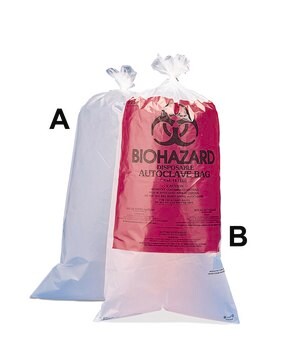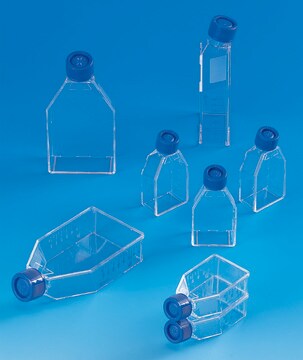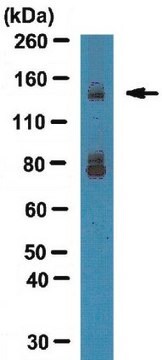79189
Abberior® FLIP 565, NHS ester
for single-molecule switching microscopy (e.g. PALM, STORM, GSDIM)
Sign Into View Organizational & Contract Pricing
All Photos(1)
About This Item
UNSPSC Code:
12352200
Recommended Products
Quality Level
form
solid
concentration
≥60.0% (degree of coupling)
solubility
DMF: 1 mg/mL, clear
fluorescence
λem 580 nm±5 nm in PBS, pH 7.4
storage temp.
−20°C
General description
Absorption Maximum (off-state) λmax:314 nm (PBS, pH 7.4)
Extinction Coefficient, ε(λmax): 47,000 M-1cm-1 (MeOH)
Fluorescence Maximum, λfl:580 nm (PBS, pH 7.4)
Photoactication Wavelength: 310-380 (one-photon activation)
650-800 (two-photon activation)
Fluorescence Quantum Yield, η: 0.38 (PBS, pH 7.4)
Extinction Coefficient, ε(λmax): 47,000 M-1cm-1 (MeOH)
Fluorescence Maximum, λfl:580 nm (PBS, pH 7.4)
Photoactication Wavelength: 310-380 (one-photon activation)
650-800 (two-photon activation)
Fluorescence Quantum Yield, η: 0.38 (PBS, pH 7.4)
Application
Abberior® FLIP 565 conjugated with secondary antibody has been used for STORM (stochastic optical reconstruction microscopy) imaging of COS-7 and S180 cells.
Suitability
Designed and tested for fluorescent super-resolution microscopy
Other Notes
Legal Information
abberior is a registered trademark of Abberior GmbH
related product
Product No.
Description
Pricing
Storage Class Code
13 - Non Combustible Solids
WGK
WGK 3
Flash Point(F)
Not applicable
Flash Point(C)
Not applicable
Choose from one of the most recent versions:
Certificates of Analysis (COA)
Lot/Batch Number
Don't see the Right Version?
If you require a particular version, you can look up a specific certificate by the Lot or Batch number.
Already Own This Product?
Find documentation for the products that you have recently purchased in the Document Library.
Remi Galland et al.
Nature methods, 12(7), 641-644 (2015-05-12)
Single-objective selective-plane illumination microscopy (soSPIM) is achieved with micromirrored cavities combined with a laser beam-steering unit installed on a standard inverted microscope. The illumination and detection are done through the same objective. soSPIM can be used with standard sample preparations
S W Hell et al.
Optics letters, 19(11), 780-782 (1994-06-01)
We propose a new type of scanning fluorescence microscope capable of resolving 35 nm in the far field. We overcome the diffraction resolution limit by employing stimulated emission to inhibit the fluorescence process in the outer regions of the excitation
Marcus Dyba et al.
Nature biotechnology, 21(11), 1303-1304 (2003-10-21)
We report immunofluorescence imaging with a spatial resolution well beyond the diffraction limit. An axial resolution of approximately 50 nm, corresponding to 1/16 of the irradiation wavelength of 793 nm, is achieved by stimulated emission depletion through opposing lenses. We
Tim Grotjohann et al.
Nature, 478(7368), 204-208 (2011-09-13)
Lens-based optical microscopy failed to discern fluorescent features closer than 200 nm for decades, but the recent breaking of the diffraction resolution barrier by sequentially switching the fluorescence capability of adjacent features on and off is making nanoscale imaging routine. Reported
Stefan W Hell
Nature biotechnology, 21(11), 1347-1355 (2003-11-05)
For more than a century, the resolution of focusing light microscopy has been limited by diffraction to 180 nm in the focal plane and to 500 nm along the optic axis. Recently, microscopes have been reported that provide three- to
Our team of scientists has experience in all areas of research including Life Science, Material Science, Chemical Synthesis, Chromatography, Analytical and many others.
Contact Technical Service





